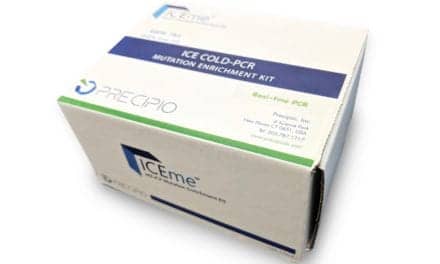Target ALS, New York City, has launched a new study that connects the Clinical Research in ALS and Related Disorders for Therapeutic Development (CREATE) consortium, the Muscular Dystrophy Association, and 10 pharmaceutical companies to validate promising biomarker candidates for amyotrophic lateral sclerosis (ALS), and immediately make all results broadly available to the worldwide ALS research community.
“By bringing academic and industry partners together, and sharing all study results freely and immediately, Target ALS is continuing to provide the tools necessary to conduct more efficient and accurate ALS clinical trials, with the ultimate goal of fast-tracking effective treatments,” says Manish Raisinghani, PhD, chief executive at Target ALS.
ALS is a devastating disease for patients and their families. While scientists have made great strides in understanding the basic biology of ALS, effective treatments for the disease remain elusive. The development of well-characterized biomarkers can improve the performance of clinical trials and help accelerate drug development across the field.
“This partnership with Target ALS and other funding agencies, along with the engagement of industry partners, is critical to advancing the identification and validation of promising biomarkers,” says Michael Benatar, MD, PhD, director of the CREATE consortium, and executive director of the ALS Center at the University of Miami.
The study will provide the validation necessary for a series of promising biomarker candidates to be the subjects of upcoming clinical trials. The candidates so far include blood and cerebrospinal fluid (CSF) neurofilament light (NfL); blood and CSF phosphorylated neurofilament heavy (pNfH); and urinary p75 neurotrophin receptor extracellular domain (p75ECD).
The patient samples and clinical information are collected by CREATE consortium investigators at 15 academic institutions. The consortium is funded primarily by the National Center for Advancing Translational Sciences and the National Institute of Neurological Disorders and Stroke, as part of the National Institutes of Health Rare Diseases Clinical Diseases Research Network, with additional support from the ALS Association and Target ALS to enhance the CREATE biorepository. Biomarker data from the validation experiments will be made available to ALS researchers worldwide without embargo or reach-through on intellectual property.
The study is led by Benatar and Lyle Ostrow, MD, PhD, a neurologist at Johns Hopkins University who also directs the Target ALS multicenter postmortem tissue core. “The formation of this cross-sector, multiinstitutional coalition is a first step toward even greater collaboration, cooperation, and coordination among industry, academic, and philanthropic partners in the ALS clinical research space,” says Ostrow.
In addition to Target ALS, other funders include the NIH (through its support for the CREATE consortium) and the Muscular Dystrophy Association. Industry partners include Amgen, Biogen, Denali Therapeutics, Genentech, Merck & Co, Sanofi Genzyme, Takeda Pharmaceutical Company Ltd, and Teva Pharmaceutical Industries.
For more information, visit Target ALS.




